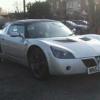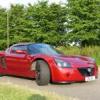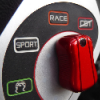
Lightened Flywheel On A Daily Driver
#21

Posted 10 April 2014 - 09:35 AM
#22

Posted 10 April 2014 - 09:37 AM
#23

Posted 10 April 2014 - 10:31 AM
#24

Posted 10 April 2014 - 10:55 AM
I've had one fitted for about 3 years. So paul is right. (I know I've got one. I fitted it) Just get it fitted while there.. love an upgrade. .Well your're all making me wonder if I have lightened flywheel or not as I have noticed no difference at all. Maybe it's because I went from a stage 1.5 to a 4 at the same time, but I do not notice any problems with day to day driving.
Edited by mbes2, 10 April 2014 - 10:56 AM.
#25

Posted 10 April 2014 - 11:01 AM
#26

Posted 10 April 2014 - 11:04 AM
#27

Posted 10 April 2014 - 11:07 AM
It all sounds pretty horrible and undesirable, to be honest.
That's another one off my list.
#28

Posted 10 April 2014 - 11:35 AM
Edited by ghand, 10 April 2014 - 11:58 AM.
#29

Posted 10 April 2014 - 01:12 PM
Yes there are, I'm just trying to understand this one thats all.
To be clear "engine" braking is the effect of all the resistance factors between the air intake and the wheels, the drive-train resistance, final drive ratio, the CR of the engine and weight of the fly wheel will all affect the overall "engine braking" effect.
The lighter the fly wheel the less rotational inertia it has the two effects being 1) It is easier to spin up in the first place and 2) it allows the engine revs to reduce more rapidly when off throttle
This will increase engine braking and reduce the amount of strain on the engine when accelerating allowing more of the energy created by the piston to be put through the drive train rather than wasted on turning the fly wheel. The same priciple goes for the balancer shaft delete.
Overall I love the lightened flywheel in my NA. Makes FA difference in traffic, and doesn't cause me any issues whatsoever. I would not be put of by people talking of having to press the accelerator to move off... It's not that bad ![]()
#30

Posted 10 April 2014 - 01:32 PM
Well that's cleared that up then! ![]()
#31

Posted 10 April 2014 - 01:34 PM
Well that's cleared that up then!
I think he just made that up.
Bloody bankers.
#32

Posted 10 April 2014 - 01:47 PM
How do you explain all the comments from a lot of different sources including my experience that it reduces engine braking ? As above these guys all experienced less engine braking, I don't get it. Could it be the extra weight of drive train parts slows the car down more and without it the engine spins longer when off throttle, seemed that way on mine very much so in fact ? First drive home I followed a Z4M on a long fast overtake after the overtake I shut off and found I had to brake hard to stop running in the back of the thing, not much happened when I came off the gas, the lack of engine braking took a little time to get used to definitely on the brakes a lot more in it.To be clear "engine" braking is the effect of all the resistance factors between the air intake and the wheels, the drive-train resistance, final drive ratio, the CR of the engine and weight of the fly wheel will all affect the overall "engine braking" effect. The lighter the fly wheel the less rotational inertia it has the two effects being 1) It is easier to spin up in the first place and 2) it allows the engine revs to reduce more rapidly when off throttle This will increase engine braking and reduce the amount of strain on the engine when accelerating allowing more of the energy created by the piston to be put through the drive train rather than wasted on turning the fly wheel. The same priciple goes for the balancer shaft delete. Overall I love the lightened flywheel in my NA. Makes FA difference in traffic, and doesn't cause me any issues whatsoever. I would not be put of by people talking of having to press the accelerator to move off... It's not that badYes there are, I'm just trying to understand this one thats all.
#33

Posted 10 April 2014 - 01:51 PM
Sounds like expensive trouble to me. Once you've spun the flywheel up, I guess the effect is reduced? So you primarily experience the accelerative effect from standstill as you have less weight to initially spin up? That is if you don't stall it when you drop the clutch!
#34

Posted 10 April 2014 - 01:56 PM
The one on my car was absolutely fine, no problem at all to drive and you would not know any difference to standard, it just spun up faster and had very little engine braking but clutch control, take off and gear change all superb.Sounds like expensive trouble to me. Once you've spun the flywheel up, I guess the effect is reduced? So you primarily experience the accelerative effect from standstill as you have less weight to initially spin up? That is if you don't stall it when you drop the clutch!
#35

Posted 10 April 2014 - 01:56 PM
I get more engine braking on mine , now the ecu map plays a big part , I noticed the quicker drop in revs means the gear changes happen quicker and minimal clutch (ttv flywheel) , so might be a F23 turbo ratios quirk
#36

Posted 10 April 2014 - 01:58 PM
When people change fly wheel is normally due to having gearbox off to do some work on engine and whilst they are there they may as we'll do the fly wheel, in my case I did it whilst changing engine with major updates , It could of been to do with any of the updated parts of removal of balance shafts or a combination of all of them , my whole setup deffo has less engine braking than standard setupHow do you explain all the comments from a lot of different sources including my experience that it reduces engine braking ? As above these guys all experienced less engine braking, I don't get it. Could it be the extra weight of drive train parts slows the car down more and without it the engine spins longer when off throttle, seemed that way on mine very much so in fact ? First drive home I followed a Z4M on a long fast overtake after the overtake I shut off and found I had to brake hard to stop running in the back of the thing, not much happened when I came off the gas, the lack of engine braking took a little time to get used to definitely on the brakes a lot more in it.To be clear "engine" braking is the effect of all the resistance factors between the air intake and the wheels, the drive-train resistance, final drive ratio, the CR of the engine and weight of the fly wheel will all affect the overall "engine braking" effect. The lighter the fly wheel the less rotational inertia it has the two effects being 1) It is easier to spin up in the first place and 2) it allows the engine revs to reduce more rapidly when off throttle This will increase engine braking and reduce the amount of strain on the engine when accelerating allowing more of the energy created by the piston to be put through the drive train rather than wasted on turning the fly wheel. The same priciple goes for the balancer shaft delete. Overall I love the lightened flywheel in my NA. Makes FA difference in traffic, and doesn't cause me any issues whatsoever. I would not be put of by people talking of having to press the accelerator to move off... It's not that badYes there are, I'm just trying to understand this one thats all.
Edited by CHILL Gone DUTCH, 10 April 2014 - 02:00 PM.
#37

Posted 10 April 2014 - 02:15 PM
Gordon, I experienced virtually no engine braking on the VXR (stage 2 lightened fly). Must be to do with the turbo in some way, I don't know how though...
What I was talking about is with the NA, so if you are comparing your VXR to your NA then that comparison is hopeless anyway as they are completely different beasts.
Chill I'm not sure, but you are SC are you not? Cam timing, forced induction, CR will all have an effect one way or the other on the effect of engine braking
Basically if you change ONLY the flywheel then engine braking will be increased as the engine will be less willing to hold onto revs when off the throttle.
Ask Goose how my NA felt compared to his...
Edited by TheRealVXed, 10 April 2014 - 02:17 PM.
#38

Posted 10 April 2014 - 02:19 PM
Gutless?Gordon, I experienced virtually no engine braking on the VXR (stage 2 lightened fly). Must be to do with the turbo in some way, I don't know how though... What I was talking about is with the NA, so if you are comparing your VXR to your NA then that comparison is hopeless anyway as they are completely different beasts. Chill I'm not sure, but you are SC are you not? Cam timing, forced induction, CR will all have an effect one way or the other on the effect of engine braking Basically if you change ONLY the flywheel then engine braking will be increased as the engine will be less willing to hold onto revs when off the throttle. Ask Goose how my NA felt compared to his...
#39

Posted 10 April 2014 - 02:27 PM
Yes I am SC, I also changed engine to b207 forged internals low compression balancer removed so I couldn't tell you exactly what caused the lack of engine braking but it did stand out as soon as I started to use the new engineGordon, I experienced virtually no engine braking on the VXR (stage 2 lightened fly). Must be to do with the turbo in some way, I don't know how though... What I was talking about is with the NA, so if you are comparing your VXR to your NA then that comparison is hopeless anyway as they are completely different beasts. Chill I'm not sure, but you are SC are you not? Cam timing, forced induction, CR will all have an effect one way or the other on the effect of engine braking Basically if you change ONLY the flywheel then engine braking will be increased as the engine will be less willing to hold onto revs when off the throttle. Ask Goose how my NA felt compared to his...
#40

Posted 10 April 2014 - 02:30 PM
Gordon, I experienced virtually no engine braking on the VXR (stage 2 lightened fly). Must be to do with the turbo in some way, I don't know how though...
Turbo will spool down slowly and therefore reduce engine braking (which is a function of the TB preventing air entering the cylinder and therefore creating a vacuum acting against piston motion)
1 user(s) are reading this topic
0 members, 1 guests, 0 anonymous users























